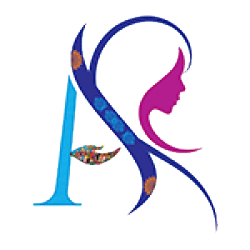About Us
Amrapari (We Can) is a women’s collective that was created during the COVID-19 pandemic and lockdown as a way of creating sustainable livelihoods for char-chapori women in Assam. Many of these women were daily wage earners (e.g., in fisheries, agricultural work, brick kilns, etc.) who suddenly found themselves without work during the lockdown. Their extreme food insecurities were exacerbated by several spates of floods. Started and led by Manjuwara Mullah, a local women’s rights activist and longtime community worker in Barpeta district Assam, Amrapari seeks to support women’s empowerment and economic self-sufficiency. This is primarily accomplished by supporting women in making and selling embroidered quilts—a legacy of women in char chapori areas.
With the Objective of gender justice, self reliance and self-determination, economic security, sustainable livelihoods, platform to showcase talents and skills, community reach this platform was created as a means to ensure women empowerment through action. We believe that economic independence of women can bring about a change in true sense in the lives of women.
It has been two years since we created Amrapari and we have been working tremendously with the skilled women out here, which has been a magnificent journey with them. Two years back I was emotionally distraught as I heard story after story of women’s struggles as they contended with acute food insecurity, atrocities at home, and the fear of the pandemic. Now, we have been able to implement the idea of making these women financially independent and also been successful in creating beautiful artistic designs and making wonders in the field of handicraft. I believe we have improved a lot in the quality as well as quantity of our production since our beginning. It has been a roller coaster ride through the bleak times of disaster like pandemic and spates of floods, where again and again the char-chapori women confronted with food scarcity. Although I would ruminate over these issues as I stitched my khetas, wondering how I might support them. The idea that sparked in my mind of establishing a women’s self-help group and collective to stitch and sell khetas has done wonders to the life of these women. I could not only rescue them from economic crisis but also stimulated them with self confidence, self respect and free from any kind of hesitation to portray themselves with all their talents. This idea with women in several chars was met with unequivocal enthusiasm. Hence completion of the two years journey.

 />
/>  />
/>  />
/>  />
/>